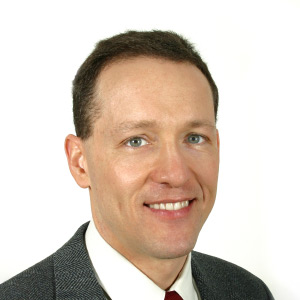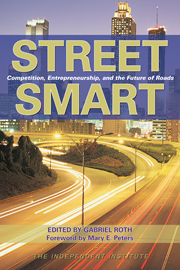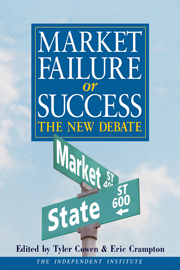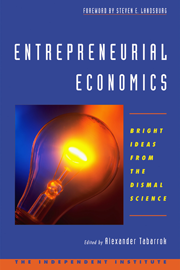In academia most economists practice technical crafts. Academic incentives strongly favor such crafts, and economists pursue academic rewards, perhaps with a faith in the applicability of “the invisible hand” to their own “industry.” But the crafts are mostly irrelevant to policy issues and contribute little to society.
The invisible hand works well when supply—of, say, shoes—caters to customers who purchase with their own money product for their own use. Competing suppliers prosper by best serving demanders. In academia, however, the demand for academic product comes from journal editors, referees, and university departments. The demand is the expression of other suppliers. It is as though shoe demanders were only other shoe makers, who demand shoes not for how well they wear but for aesthetic niceties fancied by the guild. Academic economists tend to favor peers whose crafts exalt their own handiwork. In the social sciences and humanities, demand and supply are highly interlocking, circular, and self-legitimating. The “industry” is more of a craft circle or club. And the club subsists on tax and tuition dollars. The grounds for faith in an invisible hand are rather slight.
Society would gain a great deal if economists became more relevant. Most economists are wiser about economic policy than the average voter. The public needs their help. And in being relevant, economists would better learn economic judgment and become yet wiser.
Who Makes Public Policy?
In fields such as medicine and chemistry important new decisions are made by trained experts. Even when an active patient makes his own medical decisions, he first obtains knowledge about his particular condition and becomes a narrow sort of expert. Unlike an individual making his own medical decisions, however, we decide public policy collectively. In political economy important decisions are made not by trained experts, but by government officials and voters—the Everyman (which of course includes every woman). Politicians must worry about meeting the approval of voters, the Everyman, not economists. Because the Everyman neither expects his vote to make the difference in an election nor anticipates bearing the many hard-to-see drawbacks, he has little incentive to know better about public issues. He often decides rashly, ignorantly, and incompetently.
Not knowing better, the Everyman needs saving from himself. He shoots himself in the foot by building rail transit or government housing, monopolizing letter delivery, subsidizing agriculture, restricting imports or pharmaceuticals, imposing price controls, and imposing licensing restrictions. Foolishness may be avoided by economic enlightenment. Well-intentioned policies have drawbacks that economists can skillfully illuminate.
Building rail transit or government housing means creating public-sector operations that serve society poorly and that no one owns or takes a long-term interest in. Government investment also means the displacing of other, probably more useful investment. Imposing a minimum-wage law means stripping unskilled workers of their chief means of competing against higher-skilled workers and machines. Restricting pharmaceuticals in the name of safety means denying patients drugs they need and discouraging drug development and innovation. Imposing occupational licensing means restricting the supply of services, raising the price, and preventing poor people from entering the occupation and getting a foothold on the economic ladder. Were economists to better engage the Everyman and point out such drawbacks, economists would reduce the not-worth-knowing-better problem.
The Everyman is somewhat like the drunk looking for his lost keys under a lamppost because the light is better there. Assisting the Everyman would require only basic economic ideas. Most economists could provide the analysis needed. In doing so, however, they might not show themselves to be exceptionally smart or clever. In fact, the cleverest economists at MIT or Harvard might explain basic principles no better than young graduate students at George Mason University. The economists, though knowing where the keys are, give little assistance.
Theory of What?
Academic economists crave academic rank and prestige, which translate into nice tenured positions, easy grant money, and influence over graduate students and the profession. As in most walks of life, material benefits go hand in hand with ego benefits.
The academic world needs standards for ranking economists and their research. In economics two official genres have evolved and now dominate. One is model building. The model builder writes down a toy economy ofmathematical functions called “consumers,” “producers,” and so on. As in solving a puzzle, the model builder finds the “equilibrium,” which is treated as the conclusion of the story. Of the many particulars of human practices and institutions, only one or two can be modeled at a time. Going by the code word “theory,” model building often makes no serious reference to real world happenings. Dubious work of this kind appears in Econometrica and The Journal of Economic Theory. Theory of what? one wonders.
The other official genre is statistical significance—an important test of many hypotheses, but one that is rarely placed into a broader body of argument on a policy issue. If the economist does try to make an argument about the real world, the fancy statistics are usually not the persuasive part of the argument. As Ronald Coase, Herbert Stein, Lawrence Summers, and Deirdre McCloskey have pointed out, simpler forms of evidence and reasoning are much more believable and carry the oomph of economic persuasiveness. But the simpler forms don’t qualify as impressive performance.
So to gain prestige economists perform for each other rather than enlighten society at large. If an economist writes policy studies or nonacademic articles, his colleagues may disparage such work by calling it “advocacy,” “popularization,” and “nonscience.” In academia, participating in public discourse often counts against you.
Do You Have Faith in Academia?
Not only does society suffer from missed economic instruction, but by removing himself from public discourse the academic economist also misses opportunities to better learn how policy and markets really work. Focusing exclusively on technical schemes, economists have blinded themselves to certain broad realities that do not fit in. In real life, market conditions are highly particular and in flux. Knowledge of moment-by-moment particulars resides only in decentralized form among myriad individuals, each of whom interprets the situation differently. Model building and statistical significance can scarcely appreciate the implications of a world with divided, disjointed knowledge, because only by assuming uniformity, stasis, and common knowledge does the system of equations become workable. By shutting themselves off from the real economy, economists have lost touch with the basic economic insights of Adam Smith, F.A. Hayek, and Coase. They are in fact worse economists for having preoccupied themselves with the meretricious standards of academic rank.
The failings of universities were discussed long ago by Adam Smith. He said educational institutions subsisting on endowments or state funding tend to lose enthusiasm for the basic instructional needs of the people. University faculty become a self-evaluating body. They indulge one another’s neglect of basic teaching and occupy themselves with elegant yet arid learning. Furthermore, their avoidance of “the current opinions of the world” (that is, the policy opinions of the Everyman) shields their own beliefs from challenge. Smith’s discussion of universities suggests that in scholastic communities irrelevance and bad judgment go together—a result today more amply demonstrated, in my opinion, in the more leftist (and hence, willy-nilly, more statist) disciplines of the academy. The average economist today is wiser about public policy than the average voter, but that wisdom would be still greater by his engaging in more give-and-take on concrete policy issues.
Club economists complacently affirm status-quo academic institutions. The implicit presumption is that doing well academically is doing good for society—the invisible-hand result. Some prominent free-market economists, such as George Stigler and Sherwin Rosen, have even made the presumption explicit. But neither they nor any other economist has actually done the economics of his”industry” to sustain such an invisible-hand faith. Meanwhile, many complacent club economists are ready to dismiss the research esteemed in sociology, political science, or women’s studies. But the structure of all the social science “industries” is basically similar, so why would the invisible hand apply to economics but not to the other social sciences? Economists ought to think harder about the economics of economics.
Let’s Debate the Issue!
A scholarly community depends on standards for good research, and those needs are relatively well met by equilibrium model building and statistical significance. Those genres have their proper place, and a degree of scholasticism is inevitable and indeed desirable. But there is too much. To foster research and teaching that is less paradigmatic and more relevant to policy, economists should relax certain scholastic norms.
As Thomas Mayer argues, in good policy-relevant work the chains of argument are usually made up of links even the strongest of which are not very fancy. Economists might shift their standards of evaluation to the entire chain of policy argument, not just its strongest links. In doing so, they could reduce the Everyman’s cost of learning the basics and improve public decisions.
Policy-relevant work is bound to involve greater exercise of judgment. Like scotch, judgment is heady stuff. But one may learn to imbibe more responsibly and to tolerate better the passions of other imbibers. Economists tend to see consensus as the hallmark of science, but in a science like political economy, where the true practitioner is the Everyman, perhaps equal standing should be given to dialogue. Economists should make their seminar rooms and professional journals more hospitable to policy debate and outspokenness. They should increase their esteem for basic policy work, and decrease their esteem for the two modes of academic performance currently dominant.
Economists’ Misplaced Faith in an Invisible Hand
Also published in The Freeman
This article is reprinted with permission from The Freeman, August 2000. © Copyright 2000, the Foundation for Economic Education.
Daniel B. Klein is a Research Fellow at the Independent Institute and Professor of Economics at George Mason University.
Comments
Before posting, please read our Comment Policy.











